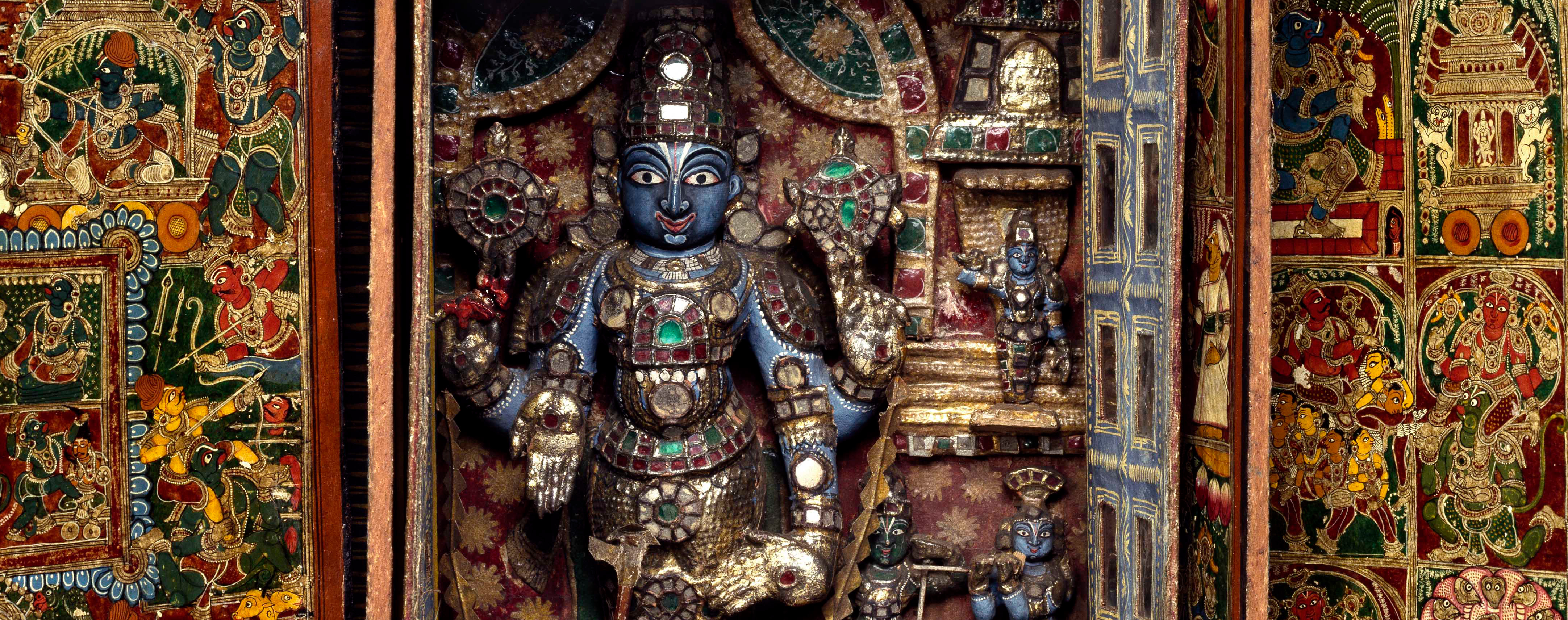A new study published in the journal, Nature, tests the theory that communities are fair and cooperate with outsiders because of the fear of divine retribution.
The researchers conducted games with people of different religions and interviewed them about their beliefs. They found the higher individuals rated their god as being moralistic, knowledgeable and punishing, the more likely they were to give money to strangers who shared their religious beliefs. The study carried out by an international research team concludes that world religions promoting moralistic, punitive gods that take an interest in human affairs may have contributed to the dramatic expansion of human societies after the agricultural revolution.
The findings are based on a series of economic games carried out with 600 people of different religions living in eight diverse countries. During several games, players were given the choice of putting money in cups assigned to their own group including themselves or in another cup intended for someone who was a stranger but who shared the same religious beliefs as that player.
The authors say that a belief in rewards from the god could not account for the results. They found instead that a belief in divine retribution or supernatural punishment may have fostered ‘good’ behaviour ie. behaviour that promotes trust, cooperation and fairness in dealings with others. The paper suggests that over time these deities spread culturally and came to dominate the world religions like Christianity, Islam and Hinduism, and as traditions grew they accounted for a large proportion of the world’s population. Through sharing beliefs and standards of behaviour, commitments to the same gods meant followers living in different, distant places had similar expectations about how to behave with others.
The study, led by the University of British Columbia, Canada, involved an international team of researchers including Dr Emma Cohen from the Institute of Cognitive and Evolutionary Anthropology at the University of Oxford. The authors interviewed nearly 600 people from eight diverse communities around the world — including Brazil, Mauritius, the Tyva Republic (Siberia) Russia, Tanzania and islands in the South Pacific Ocean. All those taking part reported following religions that included Christianity, Hinduism and Buddhism, as well as diverse local traditions, including animism and ancestor worship.
The results of this study are in line with the idea that moralistic, punitive, all-knowing gods may play a significant role in seeing individuals cooperate with wider social circles.
Dr Emma Cohen, Institute of Cognitive and Evolutionary Anthropology.
Dr Emma Cohen of the University of Oxford commented: 'Systematic cross-cultural data on psychological and cultural factors influencing people's decisions about cooperation are important for moving debates on these questions forward. The results of this study are in line with the idea that moralistic, punitive, all-knowing gods may play a significant role in seeing individuals cooperate with wider social circles.'
Lead author Benjamin Grant Purzycki, from the University of British Columbia, said: 'These results build on previous findings and tell us more about how wide-ranging cooperation has evolved in large-scale societies today. In addition to some forms of religious rituals and non-religious norms and institutions, such as courts, markets and policy, our findings suggest the threat of punishment from a god if that individual did not reach out to help strangers may have been one reason for the close bonds that developed between different communities across the world.'
‘It is worth emphasising that the subjects in this experiment were not cooperative with random strangers, only with strangers that shared the same god.’
Dr Dominic Johnson, from the Department of Politics and International Relations
'Belief in rewards from the god could not account for the results – supernatural punishment seemed responsible,' said Dominic Johnson of Oxford University, who was not involved in the research, writing in an accompanying article in Nature. 'It is worth emphasising that the subjects in this experiment were not cooperative with random strangers, only with strangers that shared the same god,' Dr Johnson said.
Dr Johnson, from the Department of Politics and International Relations, recently published the book, God is Watching You.
The paper, ‘Moralistic gods, supernatural punishment and the expansion of human sociality’, is published in Nature.
